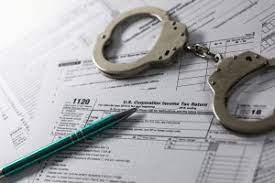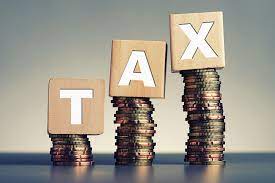Facing Tax Evasion and Tax Fraud Problems?- Get the Best Tax Defense LawyerFacing Tax Evasion and Tax Fraud Problems?- Get the Best Tax Defense Lawyer
If you are facing tax evasion or tax fraud charges, it s critical that you get a tax defense attorney to assist you shield yourself from the criminal charges. Do not make statements to tax fraud investigators without consulting a qualified NJ tax lawyer first! The tax investigations are complex and many times an innocent person has been put in jail based on incorrect information given by a tax defense attorney. In many cases, tax fraud goes undetected because the tax evasion defense attorney tries to argue away the charges or discuss ways of minimizing the tax liability.
One of the main reasons why the investigation will proceed is due to improper methods or an innocent explanation by the tax evasion defense attorney. In most cases, tax fraud occurs when an individual or business creates sales tax exemptions or job opportunities for tax defiers. When the government starts an investigation, they will rely on an individual’s explanation as well as any receipts or records that were created in the course of doing business. In order to defeat an investigation, the tax evasion defense attorney will usually attempt to discredit or deny any findings. They may also assert that tax laws are too complicated to comply with, said a tax lawyer serving in all of New Jersey.
Often, even after a tax fraud case has been brought against an individual, the penalties related to the case can result in excessive financial hardships for the defendant and their family. Because there is a fine line of defense in tax evasion, many tax fraud attorneys choose to go through the process using a standard form of negotiation in which they try to convince the government that additional tax obligations do not exist. A typical negotiation would include a statement from the tax evasion attorney that indicates that, if additional tax liability cannot be accrued, he or she will offer to pay taxes in full or that payment of the current tax obligations is not necessary. These types of arguments often do not hold up in court. Many tax evasion cases end with fines, large penalty amounts and a large amount of time in jail.
Another tactic employed by tax evasion lawyers is to challenge the basis for the investigation. They may dispute how the government obtained the information or try to argue that the amount of tax liability actually reflected a low-earnings lifestyle for the defendant. They may also raise questions about how the investigation came up to the conclusions it did. They may even request additional reports to determine if a reasonable person could assume that the tax liability was actually “justified.” A tax lawyer can also challenge the legality of the investigation, claiming that if the investigation is valid, then the government should have found something that didn’t.
Tax crimes come in a wide range of criminal offenses. Some of the most common include evasion, avoidance, non-assessment, fraudulent return preparation, non filing of tax returns, and false filing of tax claims. Federal tax crimes can include any of the following: earnings and profits, income, gain, loss, theft, nonpayment of delinquent tax, paying tax twice, structuring of transactions, property misappropriation, perjury, tax evasion, tax fraud, disobedience to tax laws, tax evasion, forgery, and  identity theft. These are just a few of the various crimes that tax fraud can involve. The government has to prove that the defendant committed the crime in order to convict it. The U.S. tax code is quite complex, and it is very difficult for tax attorneys to understand it without the help of an expert.
identity theft. These are just a few of the various crimes that tax fraud can involve. The government has to prove that the defendant committed the crime in order to convict it. The U.S. tax code is quite complex, and it is very difficult for tax attorneys to understand it without the help of an expert.
Most tax frauds are crimes of opportunity, but there are still some tax evasion tactics that fall outside of this broad category. For example, there may be instances where a tax fraudster operates his business using fake tax identification badges. In other cases, tax fraud may involve a business owner falsely stating how much business he is doing when he actually isn’t. If tax fraud results in under reporting of income or assets, these misrepresentations can be used against the defendant at trial. In these instances, the government will need a witness, like a business owner, who can testify that the tax fraud occurred. Even though these tactics are often referred to as “smear tactics,” they have been found in practice from time to time.
 Most tax liabilities come from assets rather than income, said
Most tax liabilities come from assets rather than income, said  There are different kinds of taxes that you need to pay in New Jersey. These taxes include income tax, property tax, vehicle tax, sales tax, Medicare, estate tax, and inheritance tax. If you do not have much idea about the tax implication and do not understand what tax you need to pay, you can hire a tax attorney to make you understand all about the new tax laws. A
There are different kinds of taxes that you need to pay in New Jersey. These taxes include income tax, property tax, vehicle tax, sales tax, Medicare, estate tax, and inheritance tax. If you do not have much idea about the tax implication and do not understand what tax you need to pay, you can hire a tax attorney to make you understand all about the new tax laws. A  But what really makes Virginia’s taxation system so unique is its ‘hidden’ nature. Every year during the session of the General Assembly, the state government prepares its tax proposal. The budget contains a list of tax items that will be imposed at each level of state revenue. Taxing is done at the territorial, federal, state and local levels. The nature of these taxes, which may not be known to the common person, is called the ‘nature of taxes’ in Virginia.
But what really makes Virginia’s taxation system so unique is its ‘hidden’ nature. Every year during the session of the General Assembly, the state government prepares its tax proposal. The budget contains a list of tax items that will be imposed at each level of state revenue. Taxing is done at the territorial, federal, state and local levels. The nature of these taxes, which may not be known to the common person, is called the ‘nature of taxes’ in Virginia.